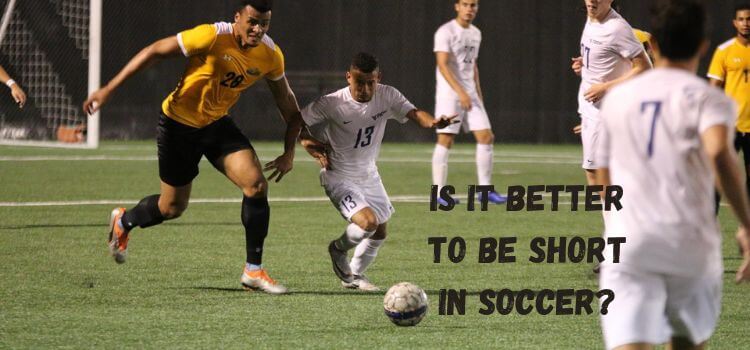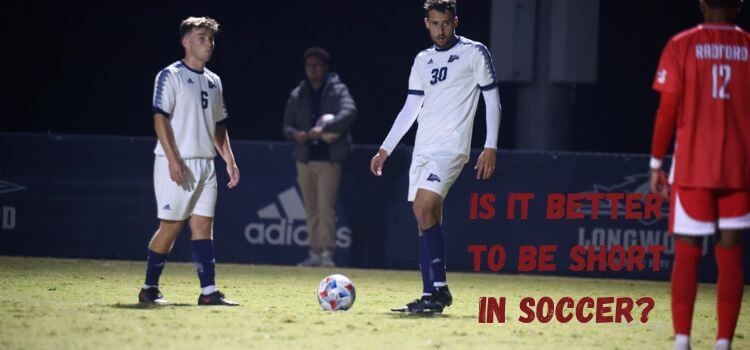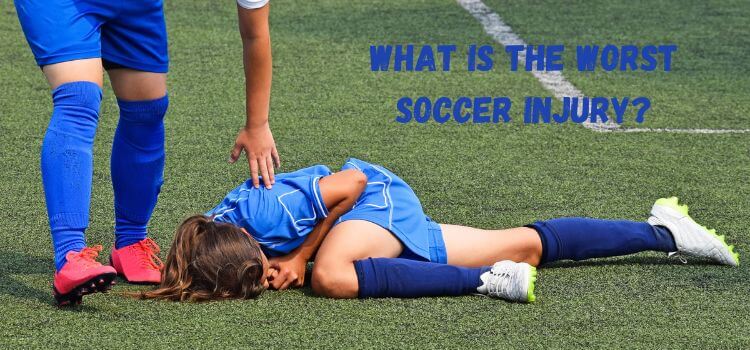As an Amazon Associate, I earn from qualifying purchases
Could being short in soccer give you an edge on the field? The question of height and its impact on soccer performance has intrigued players, coaches, and fans for years. In this article, we delve into the debate surrounding the phrase “Is it Better to Be Short in Soccer?” and explore the advantages and disadvantages of varying heights in the beautiful game.
Whether you’re a towering defender or a diminutive midfielder, understanding how height influences your game can provide valuable insights into optimizing your performance on the pitch. Let’s uncover the truth behind this age-old question and shed light on the height dynamics in soccer.

Introduction to the Debate
The world of soccer is filled with debates and discussions, and one perennial topic is whether it’s better to be short or tall on the field. While some argue that height provides an advantage in various aspects of the game, others advocate for the benefits of being shorter and more agile. Let’s delve into this topic and explore the pros and cons of being short in soccer.
Advantages of Being Short in Soccer
Agile Movement
Shorter players often exhibit superior agility and quickness on the field. Their more diminutive stature allows them to change direction rapidly and easily navigate tight spaces, making them elusive targets for defenders.
Lower Center of Gravity
With a lower center of gravity, shorter players have better balance and stability, enabling them to maintain control of the ball in challenging situations. This advantage can be crucial in dribbling past opponents and retaining possession under pressure.
Enhanced Dribbling Skills
Shorter players tend to possess exceptional dribbling skills. They utilize their low center of gravity to maneuver the ball close to the ground with precision and control. Their agility and quick footwork make them adept at evading defenders and creating scoring opportunities.
Disadvantages of Being Short in Soccer
Aerial Challenges
One of the most significant drawbacks for shorter players is their limited ability to take on aerial challenges. In situations such as headers and aerial duels, taller opponents often have a distinct advantage due to their height and reach, making it challenging for shorter players to compete effectively.
Physical Duels
In physical battles for the ball, taller players may overpower shorter opponents with their strength and size. Shorter players might need help to hold their ground against taller, more physically imposing adversaries, especially in one-on-one confrontations.
Limited Reach
Shorter players may face challenges reaching high balls or stretching to make tackles, particularly in defensive positions. This limitation can leave them vulnerable to taller opponents who can exploit their height advantage to dominate in crucial areas of the field.
The Role of Short Players in Soccer
Despite the disadvantages, short players often play crucial roles in soccer teams. Their agility, quickness, and technical skills can make them invaluable assets, particularly in positions that require creativity, speed, and precision.
Tactical Advantages
Coaches may strategically deploy shorter players in positions where their strengths can be maximized, such as attacking midfield or winger roles. Their agility and dribbling abilities in these positions can unlock defenses and create scoring opportunities for their team.
Position-Specific Considerations
Certain soccer positions may be more suited to shorter players based on their skill set and playing style. For instance, diminutive playmakers often thrive in central midfield roles, orchestrating attacks and dictating the game’s tempo with their vision and passing ability.

Famous Short Players and Their Impact
Throughout soccer’s history, numerous short players have made significant contributions to the sport, defying stereotypes and leaving a lasting legacy.
From iconic playmakers to prolific goal scorers, these athletes have showcased the immense talent and skill possessed by shorter individuals.
Examples from Professional Leagues
Players like Lionel Messi, Diego Maradona, and Andres Iniesta have demonstrated that height is no barrier to success in soccer. Despite being shorter than many of their counterparts, these legends have achieved unparalleled success at the game’s highest levels, earning admiration and respect worldwide.
Notable Achievements
Short players have consistently excelled on the soccer field, winning prestigious awards such as the FIFA Ballon d’Or and leading their teams to victory in domestic and international competitions.
Their achievements inspire aspiring soccer players of all heights, proving that talent and determination can overcome any obstacle.
Training Tips for Short Soccer Players
Short soccer players can maximize their potential on the field by focusing on specific game areas and adopting targeted training routines. By honing their skills and addressing potential weaknesses, they can enhance their performance and significantly contribute to their teams.
Strength and Agility Training
Incorporating strength and agility exercises into their training regimen can help short players improve their physical attributes and compete more effectively against taller opponents.
Building strength in key muscle groups and enhancing agility and quickness can give them a competitive edge on the field.
Tactical Awareness Drills
Developing tactical awareness and understanding of the game’s nuances is crucial for short players to excel in their respective positions.
Engaging in drills that simulate game scenarios and emphasize positioning, decision-making, and spatial awareness can enhance their overall performance and contribute to team success.
Overcoming Height Bias in Soccer
While height may confer certain advantages in soccer, it should not be the sole determinant of a player’s potential or value to their team.
Coaches and scouts should prioritize skill, work ethic, and mentality over physical attributes when evaluating players, ensuring that talent is recognized and nurtured regardless of height.
Emphasizing Skills Over Stature
Encouraging a culture of inclusivity and diversity in soccer can help dispel stereotypes and biases associated with height. By focusing on developing technical skills, creativity, and intelligence on the field, teams can harness the full potential of players of all heights and backgrounds.
Breaking Stereotypes
Short players have the opportunity to challenge stereotypes and perceptions through their performances on the field. They showcase their talent and prove that height is not a limiting factor in soccer.
By consistently delivering standout performances and achieving success, they can inspire future generations of players and reshape perceptions within the sport.
Conclusion
In conclusion, the debate over whether it’s better to be short in soccer is multifaceted and nuanced. While height may offer particular advantages in aerial duels and physical battles, shorter players possess unique attributes such as agility, quickness, and technical proficiency that can be equally valuable on the field.
By embracing inclusivity and recognizing the diverse talents of players of all heights, soccer can continue to evolve as a sport where skill and determination triumph over physical stature.
FAQs
Short players may face challenges in certain aspects of the game, such as aerial duels, but they can compensate with their agility and technical skills.
Absolutely. Many short players have achieved great success at the highest levels of the sport, proving that talent and dedication are more important than height.
Positions that require agility, quickness, and creativity, such as attacking midfield or winger roles, are often well-suited for shorter players.
Short players can work on their jumping technique, timing, and positioning to compete more effectively in aerial challenges.
No, soccer is a multifaceted sport where skill, intelligence, teamwork, and mentality play crucial roles in determining success on the field.
Read Our More Articles
- Why Basketball is Better than Soccer: A Comprehensive Guide
- How to Make Soccer Better Hockey: Strategies for Success
- How to Make Soccer Better Meme: Humor elevates your game
As an Amazon Associate, I earn from qualifying purchases


